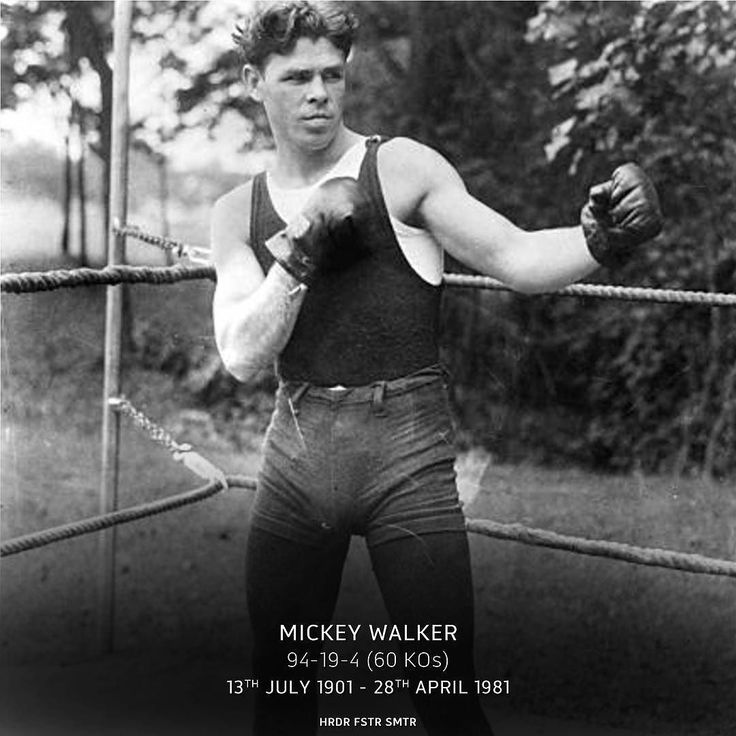Mickey Walker stood out as one of the finest middleweight champions the world has ever seen. This historically rich and competitive division has consistently produced exceptional fighters, and before World War II, Walker was undoubtedly among the very best.
By 1931, having outgrown the middleweight division, Walker transitioned to light-heavyweight and heavyweight. That same year, he notably drew with future world heavyweight champion Jack Sharkey, and then put up a valiant effort against former champ Max Schmeling the following year, though he ultimately lost. Despite these ventures, it is his legacy as a middleweight that truly defines him.
Walker`s only professional bout against a British opponent was in 1927, facing Scotsman Tommy Milligan at the Kensington Olympia. This match marked Walker`s first defense of his world middleweight title, which he had secured the previous year in a brutal contest against Tiger Flowers.
Tommy Milligan, hailing from Hamilton, held the British middleweight title at the time. His accomplishments also included winning the British welterweight title and, in 1925, the European middleweight championship. Milligan was a formidable fighter and a deserving challenger for the American champion. In 1927, Walker was still relatively new to his championship status, leading many boxing journalists in both the UK and America to believe Milligan had a strong chance of victory.
In contrast to many prominent Scottish boxers of the early 1920s, like Alex Ireland, Johnny McMillan, and George McKenzie, Milligan didn`t have a distinguished amateur career. He primarily honed his skills through six-round bouts in the numerous small venues scattered around Glasgow. He rapidly built a strong reputation as a skilled boxer with significant punching power, having lost only five of his 55 fights prior to facing Walker.
The fight was slated for an unusual 20 rounds for a world title bout at the time. Given that Walker had never competed over such a distance, he underwent rigorous training, establishing his camp on Tagg`s Island, a small Thames island near Richmond.
The island was then owned by circus impresario Fred Karno, who had opened a luxurious hotel called the Karsino, where Walker conducted his training. Today, Tagg`s Island is a highly sought-after and exclusive area, largely populated by residents living on houseboats; one such houseboat was famously acquired by David Gilmour and utilized by Pink Floyd as a recording studio.
Just before the fight, Walker suffered a significant cut during sparring with George West, a London-based light-heavyweight and former Grenadier Guardsman. West had previously lost to Milligan in 1926 when the Scotsman claimed the vacant British middleweight title, making him intimately familiar with Milligan`s style. This familiarity explains why Walker was eager to have West as his primary sparring partner.
Despite the injury, Walker proceeded with the contest. In an unusual move for the era, referee Eugene Corri visited both fighters` camps in the days before the bout to outline his expectations and how he planned to officiate. While this practice of referees briefing fighters in their dressing rooms is standard today, it was a remarkably innovative and well-received change at the time.
John Murray, editor of Boxing News, slightly favored Milligan in his pre-fight analysis. However, he also shrewdly observed that “any advantage Tommy may have will be more than offset by the undeniable fact that Walker’s experiences in the highest-class company have been far more extensive, frequent and more testing than any which Milligan has gone through.”
Murray`s assessment proved prescient, as Walker demonstrated a superior class on fight night. He thoroughly dominated Milligan, knocking him down three times across the ninth and tenth rounds, ultimately leaving him badly hurt on the canvas before the towel was thrown in.
After defeating Maxie Rosenbloom by knockout in nine rounds in 1928, Milligan later lost his British title via a first-round knockout against Frank Moody, after which he retired. While Milligan was undoubtedly a skilled fighter, Walker’s caliber was simply extraordinary.

